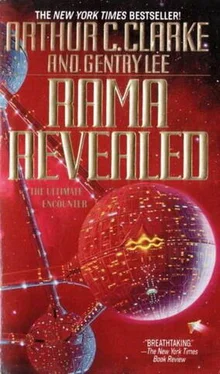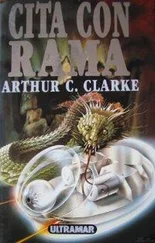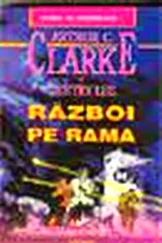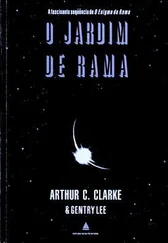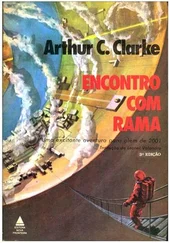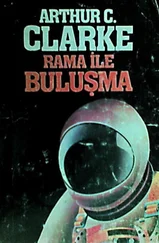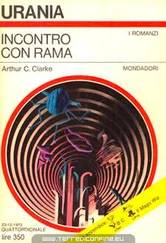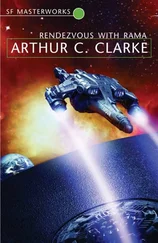Nicole was shaking her head. “At what point does all of this become senseless? No matter what you do now, it’s only a matter of time until some other organ fails. What would be next? My lungs? Or maybe my eyes? Would you even give me a brain transplant if I could no longer think?”
“We could,” the Eagle replied.
Nicole was quiet for almost a minute. “It may not make much sense to you,” she said, “because it certainly isn’t what I would call logical… but I am not very comfortable with the idea of becoming a hybrid being.”
“What do you mean?” the Eagle asked.
“At what point do I stop being Nicole des Jardins Wakefield?” she said. “If my heart, brain, eyes, and ears are replaced by machines, am I still Nicole? Or am I someone, or something, else?”
“The question has no relevance,” the Eagle said. “You’re a doctor, Nicole. Consider the case of a schizophrenic who must take drugs regularly to alter the functions of the brain. Is that person still who he or she was? It’s the same philosophical question, just a different degree of change.”
“I can see your point,” Nicole said after another brief silence. “But it doesn’t change my feelings. I’m sorry. If I have a choice, and you have led me to believe that I do, then I will decline. At least for today anyway.”
The Eagle stared at Nicole for several seconds. Then he entered a different set of parameters into the control system of the shuttle. The vehicle changed its heading.
“So are we going back to the starfish?” Nicole asked.
“Not immediately,” the Eagle said. “I want to show you something else first.” The alien reached into the pouch around his waist and pulled out a small tube containing a blue liquid and an unknown device. “Please give me your arm. I don’t want you to die before this afternoon is over.”
As they approached the Habitation Module of the Node, Nicole complained to the Eagle about the “less than forthright” way the dividing of the starfish residents into two groups had been handled. “As usual,” Nicole said, “you cannot be accused of telling a lie-just of withholding critical information.”
“Sometimes,” the Eagle said, “there are no good ways for us to complete a task. In those cases we choose the least unsatisfactory course of action. What did you expect us to do? Tell the residents in the beginning that we couldn’t take care of everyone forever, generation after generation? There would have been chaos. Besides, I don’t think you give us enough credit. We rescued thousands of beings from Rama, most of whom probably would have died in an interspecies conflict without our intervention. Remember that everyone, including those assigned to the Carrier, will be allowed to complete his or her life.”
Nicole was silent. She was trying to imagine what life on the Carrier would be like without any reproduction. Her mind carried the scenario into its likely distant future, when there would be only a few individuals left. “I wouldn’t want to be the last human left alive in the Carrier,” she said.
“There was a species in this part of the galaxy about three million years ago,” the Eagle said, “that flourished as a spacefarer for almost a million years. They were brilliant engineers and built some of the most amazing buildings ever seen. Their sphere of influence spread rapidly until they dominated a region covering more than twenty star systems. This species was learned, compassionate, and wise. But they made one fatal error.”
“What was that?” Nicole asked on cue.
“Their equivalent to your genome contained an order of magnitude more information than yours. It had been the result of four billion years of natural evolution and was extremely complicated. Their initial experiments with genetic engineering, both on other species and on themselves, were an unqualified success. They thought they understood what they were doing. However, without their knowledge, slowly but surely the robustness of the genes that were being transferred from generation to generation was deteriorating. When they finally understood what they had done to themselves, it was too late. They had preserved no pristine specimens from the early days, before they had begun to modify their own genes. They could not go back. There was nothing they could do.
“Imagine,” the Eagle said, “not just being the last member of your group on an isolated spaceship like the Carrier, but being one of the terminal survivors of a species rich in history, art, and knowledge. Our encyclopedia contains many such stories, each containing at least one object lesson.”
The shuttle moved through an open port in the side of the spherical module and came to a gentle stop against a wall. Automatic gantries on each side were deployed to keep the vehicle from drifting. There was a ramp from the passenger side of the shuttle to a walkway, which in turn led toward the hub of the transportation complex.
Nicole laughed. “I was so engrossed in our conversation,” she said, “that I didn’t even look at this module from the outside.”
“You wouldn’t have seen much that was new,” the Eagle said.
The alien then turned to Nicole and did something very unusual. He reached across the shuttle and took both of her gloved hands. “In less than an hour,” he said, “you are going to experience something that will astound you and also arouse your emotions. Originally, we had planned that this excursion would be a complete surprise. But with your weakened condition, we can’t risk the possibility that your system might be overpowered by emotional input. Therefore, we have decided to tell you first what we’re about to do.”
Nicole felt her heart rate increase. What is he talking about? she thought. What could be so unusual?
“We will board a small car that will travel several kilometers into this module. At the end of this short journey you will be reunited with your daughter Simone and Michael O’Toole.”
“What?” Nicole shouted, tearing her hands away from the Eagle and placing them on the side of her helmet. “Did I hear you correctly? Did you say that I was going to see Simone and Michael?”
“Yes,” the Eagle replied. “Nicole, please try to relax.”
“My God!” Nicole exclaimed, ignoring his comment. “I cannot believe it. I just cannot believe it… I hope that this is not some kind of cruel trick.”
“I assure you that it is not.”
“But how can Michael still be alive?” Nicole asked. “He must be at least a hundred and twenty years old.”
“We have helped him with our medical magic, as you call it.”
“Oh, Simone, Simone!” Nicole cried. “Can it be? Can it really be?”
Despite the pain in her hip and the unwieldy space helmet, Nicole almost jumped across the seat to give the Eagle a hug. “Thank you, oh, thank you,” she said. “I cannot tell you how much this means to me.”
The Eagle steadied Nicole’s wheelchair on the escalator as they descended into the center of the main transportation complex. She looked around briefly. The station was identical to the one she remembered from the Node near Sirius. It was about twenty meters tall and laid out in a circle. Half a dozen moving sidewalks surrounded the central display, each running into a different arched tunnel leading away from the complex. Above the tunnels, to the right, were a pair of multilevel structures.
“Do the intermodule trains depart from up there?” Nicole asked, remembering a ride with Katie and Simone when the girls were both young.
The Eagle nodded. He pushed her wheelchair onto one of the moving sidewalks and they left the center of the station. They traveled several hundred meters in a tunnel before the moving sidewalk stopped. “Our car should be just to the right, in the first corridor,” the Eagle said.
Читать дальше
